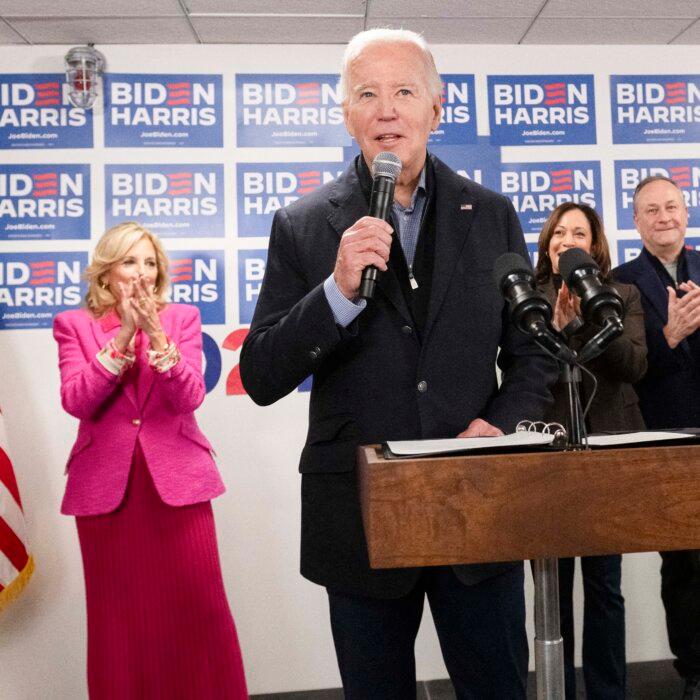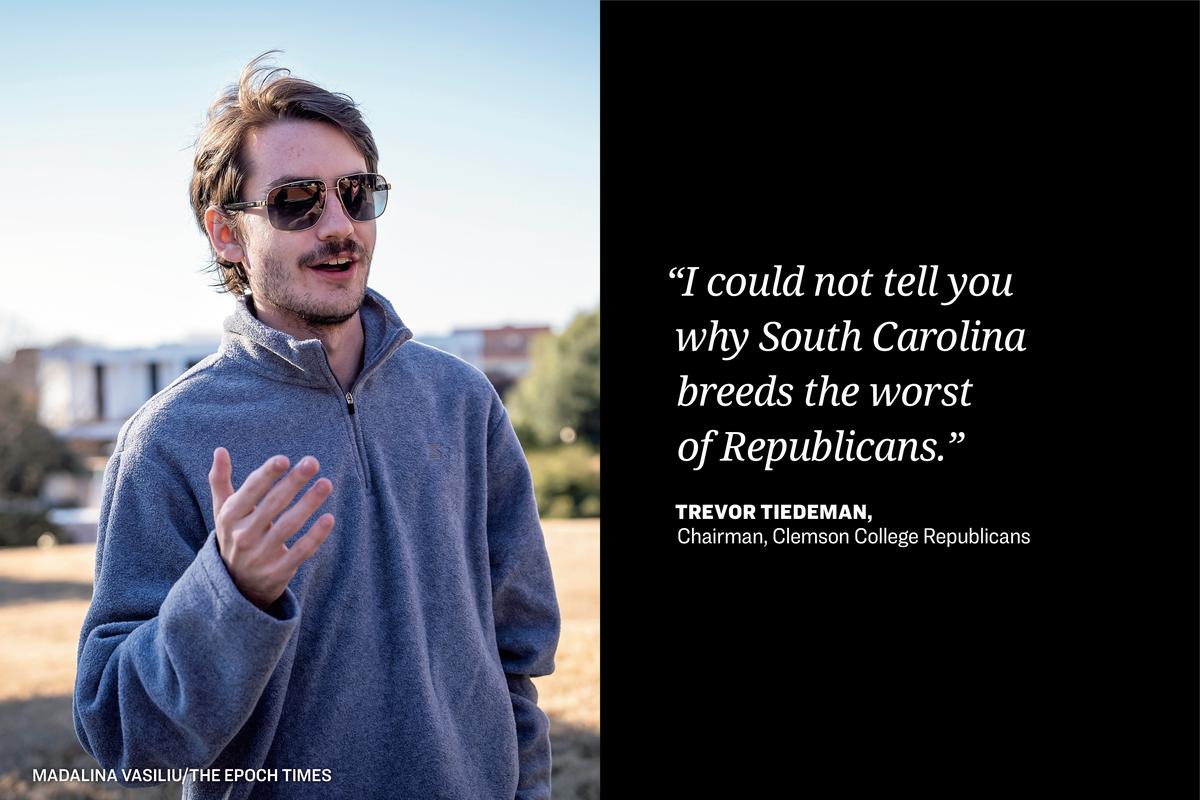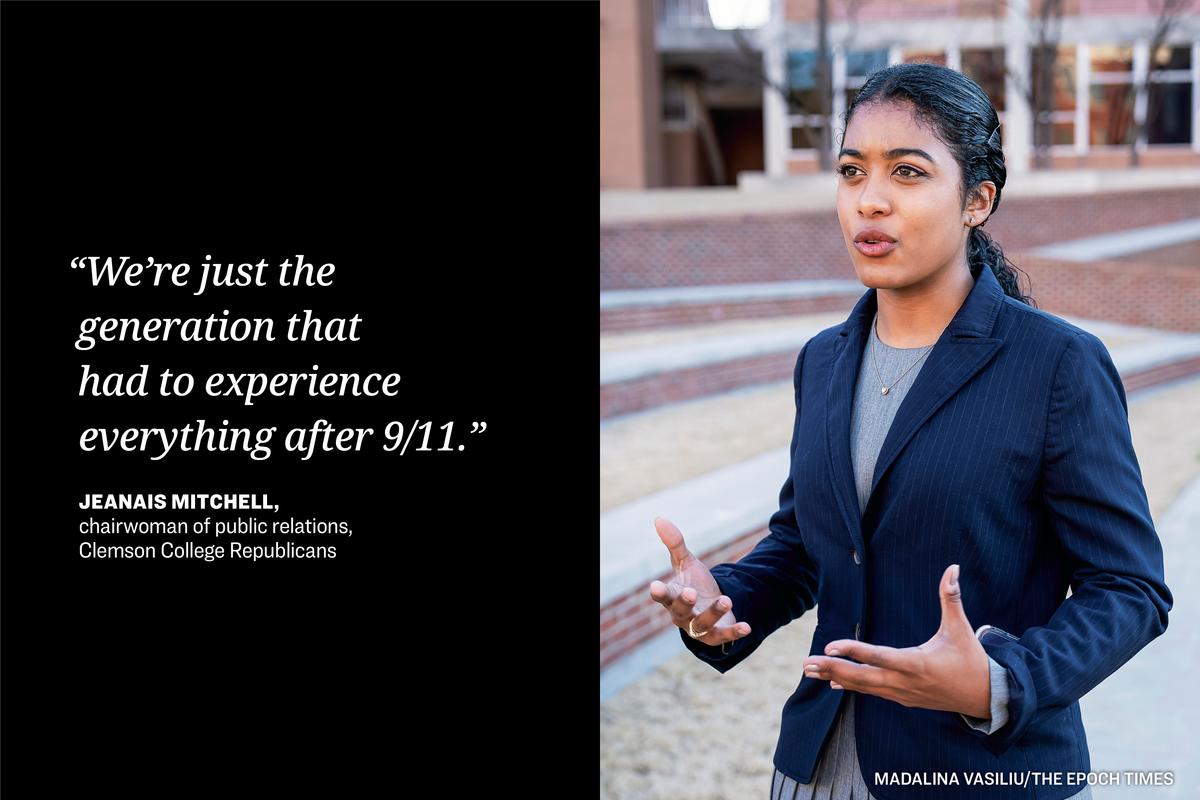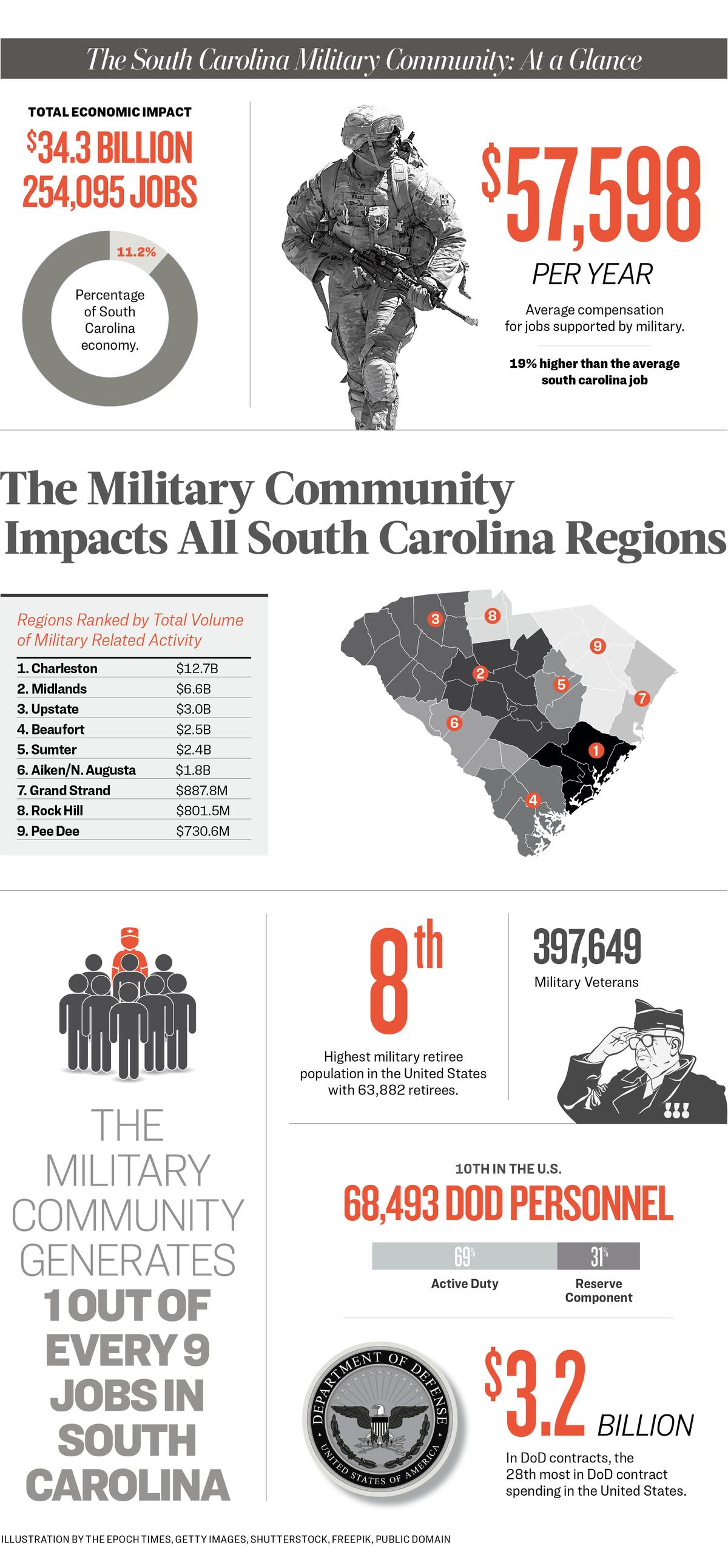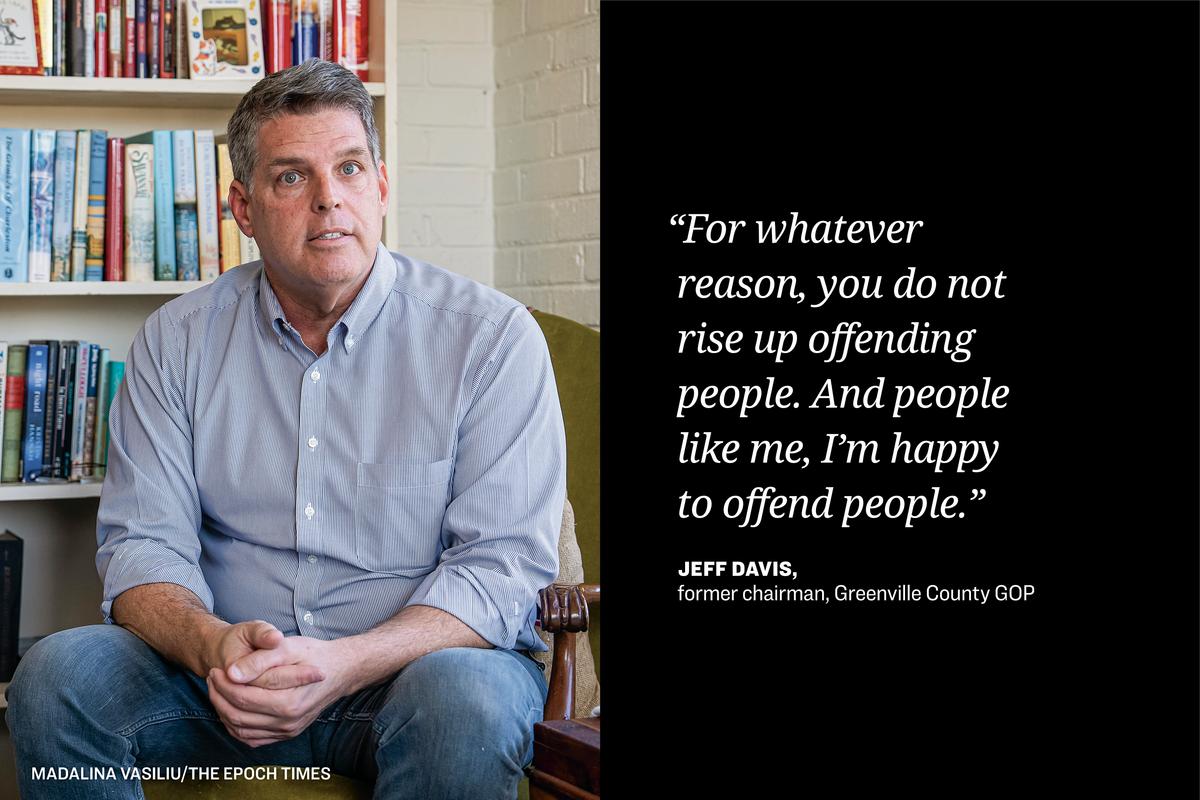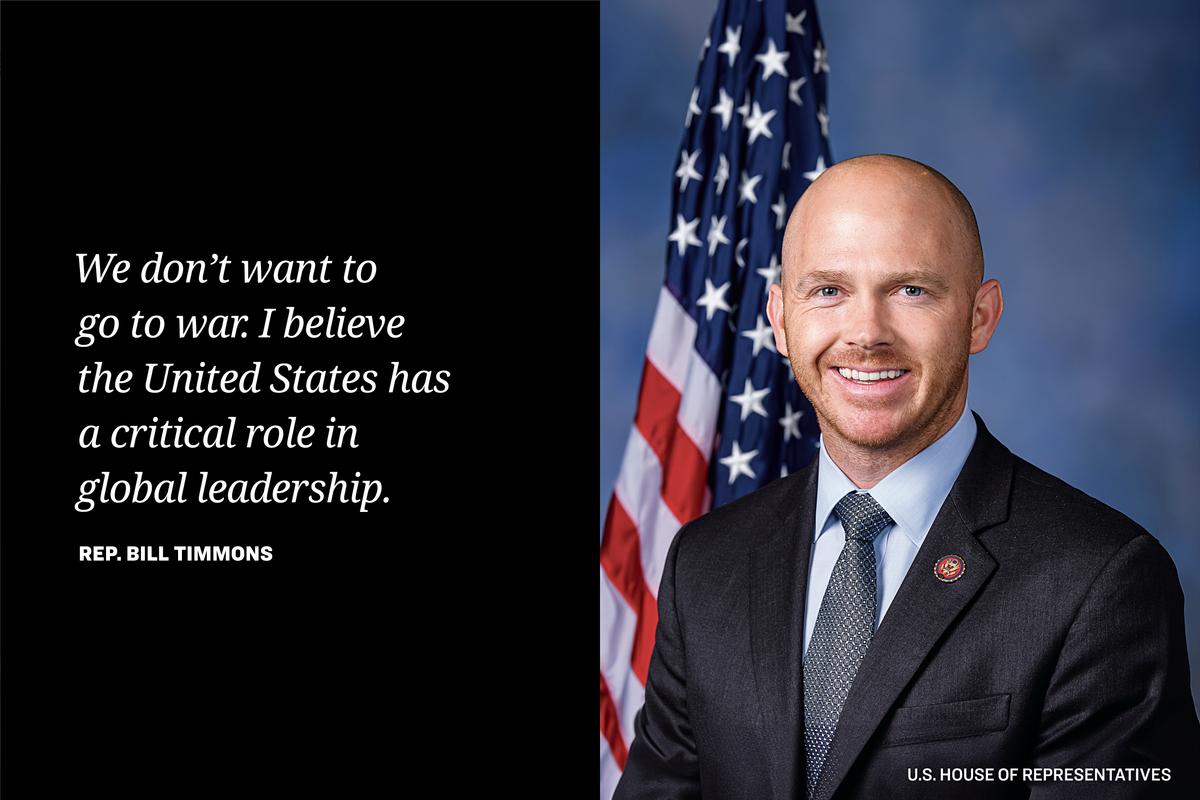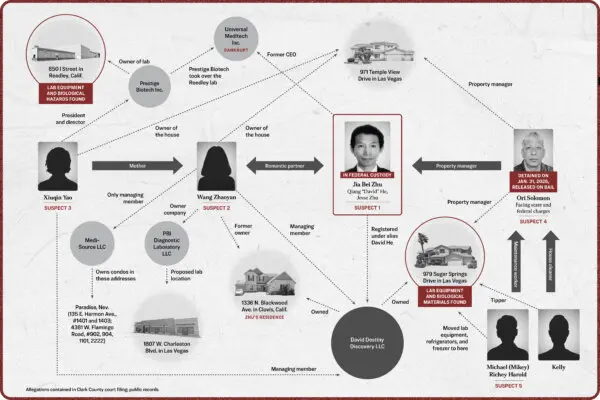CHARLESTON, S.C.—One doesn’t have to travel very far in South Carolina to discover reminders of its martial spirit.
Eight military bases are scattered across the state. They include Parris Island, where U.S. Marines pass through boot camp—an experience fictionalized in Stanley Kubrick’s “Full Metal Jacket.”
Behind glass at the Charleston Museum, a pair of intricately carved 19th-century dueling pistols stand in for an old honor culture that still hasn’t been totally extirpated from the U.S. South.
The same South Carolina that supplied great military leaders such as Revolutionary War Gen. William Moultrie produced pro-slavery Rep. Preston Brooks (D-S.C.), a Democrat who in 1856 beat abolitionist Sen. Charles Sumner (R-Mass.) half to death with a cane in the Senate chamber.
Not far away from the Charleston Museum, across the water from the spot where Moultrie built his famous fort of palmetto logs, is the place where the U.S. Civil War began. Fort Sumter hunkers low over Charleston Harbor.
Just outside Charleston’s airport, near the Air Force base, sits a symbol of the modern military-industrial complex: the North Charleston Boeing Plant.
Former South Carolina governor and presidential hopeful Nikki Haley’s connection to Boeing, where she served on the board of directors, has become a talking point for her foes, particularly those siding with former President Donald Trump.
Yet while campaigning in the Palmetto State—a nickname honoring the fort created by Moultrie—Ms. Haley has bragged about the aerospace giant’s local manufacturing activity, which came about through a deal hatched under her predecessor, former South Carolina Gov. Mark Sanford.
“By the time I left, we were building planes with Boeing,” Ms. Haley told a crowd at New Realm Brewing Co. on Charleston’s Daniel Island during a Feb. 4 campaign stop.
South Carolinian Bill Warren, who was waiting to hear the former governor speak, told The Epoch Times, “I think that South Carolina’s got a long history of not being afraid to mix it up.”
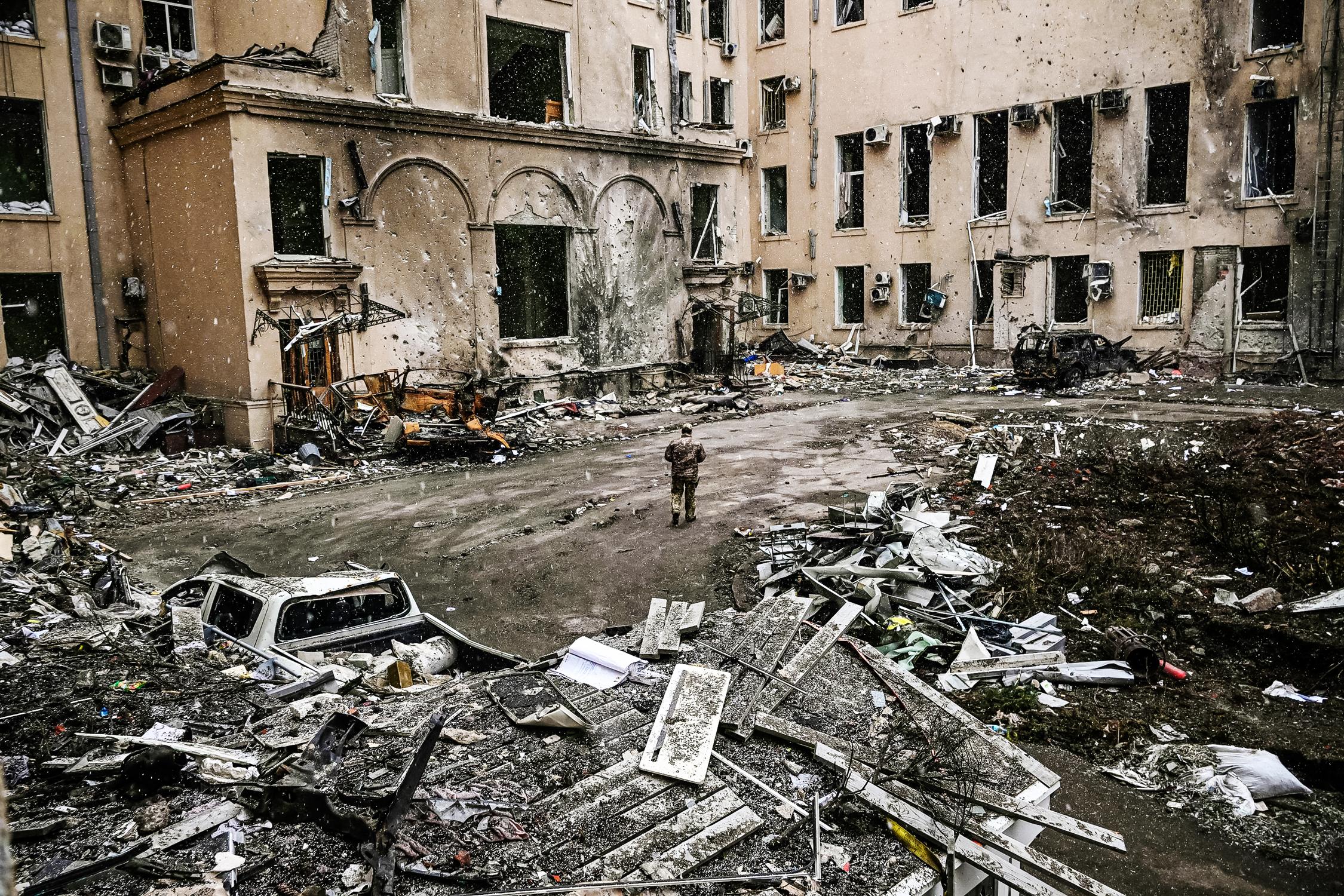
The label has also been applied to other South Carolina politicians, including Sen. Lindsey Graham (R-S.C.). Of course, like almost everyone else at the top of the state’s Republican food chain, Mr. Graham has endorsed President Trump, often seen as an opponent of neoconservatism, over Ms. Haley ahead of his state’s open primary on Feb. 24.
The conservative establishment’s assessment of President Trump’s view on foreign affairs was shaken up during the presidential debate in South Carolina in February 2016.
“I’m a big Ron Paul guy,” South Carolina state Rep. Jordan Pace, a Republican, told The Epoch Times.
Mr. Pace had just spoken after Rep. Nancy Mace (R-S.C.) at a pro-Trump press conference on Feb. 2 outside the Patriots Point Naval & Maritime Museum in Mount Pleasant, South Carolina. Anchored in the water behind him was a retired U.S. Navy aircraft carrier, the slate-gray USS Yorktown—another symbol of U.S. military might, known for its role in capturing Iwo Jima and other Pacific islands during World War II.
“If you talk to former military, especially military that fought in the Middle East, the vast majority of those guys are adamantly against the Bush–Cheney neoconservative former policy, the whole saber-rattling nonsense,” Mr. Pace said.
“Honestly, the biggest draw for Trump in this current contest in my mind, besides the fact that he’s not Nikki Haley, is that he didn’t start any new foreign wars.”
‘We’ve Shifted From Your Neocon Establishment’
In the northwest corner of the state, before the Piedmont hills rise sharply into the Blue Ridge Mountains, stands Clemson University.On the morning of Feb. 3, Trevor Tiedeman, chairman of the Clemson College Republicans, spoke to The Epoch Times near the school’s terraced amphitheater.
He made it clear who the youthful conservatives whom he knows tend to like: President Trump and talk show host Tucker Carlson.
“He [Mr. Carlson] changed the American right in a way that’s been very, very positive, because we’ve shifted from your neocon establishment to your more populist type,” Mr. Tiedeman, a senior studying industrial engineering, told The Epoch Times.
“[The legislature] is full of opportunists. They all think they’re gonna get some national position,” Mr. Wilson told The Epoch Times over the phone on Feb. 6.
“I could not tell you why South Carolina breeds the worst of Republicans,” Mr. Tiedeman said, suggesting that some in Charleston, Hilton Head, and other parts of the state’s coastal Lowcountry are “country club Republicans” committed to the status quo.
“It must be something in the water around here.”
JeAnais Mitchell, another Clemson senior who serves as the Young Republicans’ public relations chairwoman, told The Epoch Times that younger South Carolinians are moving in a more Trumpian direction on war.
“We’re just the generation that had to experience everything after 9/11—realizing so much carnage, realizing all the pain and hurt, and how so much of it could have been avoided if people didn’t have such a narrow focus on what they wanted instead of the good of the entire nation,” said Ms. Mitchell, who’s studying history and legal studies and also leads outreach for the school’s Turning Point USA chapter.
“If we’re not strong and can’t do well, then it doesn’t matter what happens on the other side of the world because we won’t be able to survive.”
But Clemson conservatives aren’t the only young South Carolinians sounding like non-interventionists (or, to some, isolationists) on foreign policy.
At South Carolina State University, a historically black college in Lowcountry Orangeburg, South Carolina, Raymond James is looking forward to voting for President Trump. One of his main worries is warfare that’s embroiling the United States across the world, a troubling recent trend.
“It’s getting out of hand,” Mr. James told The Epoch Times.
At The Citadel, a senior military college in Charleston, students walk through the campus in fatigues. Near the entrance of the library, tabletop miniatures illustrate the Carthaginian general Hannibal’s strategy against Rome.
Deeper inside, a mural depicts cadets at the Old Citadel in 1846. Those men trained their state’s Palmetto Regiment ahead of the Mexican–American War. That regiment’s members included Preston Brooks, the future congressman who caned Sen. Charles Sumner. Many Citadel graduates fought in that conflict, too.
Lewis Diggle, a freshman studying finance, told The Epoch Times that he didn’t sense a lot of cynicism about war among students at The Citadel, even after decades of U.S. involvement in the Middle East.
But Colin Weldon, another freshman at The Citadel, said morale regarding escalating U.S. military involvement, including with Iran, is “50–50” on campus: half positive, half negative.
“There [are] some people who are like, ‘Yeah, I can’t wait.’... And there [are] some people who don’t want to be involved in a foreign conflict,” said Mr. Weldon, who’s studying supply chain management.
Like Mr. Pace and others who have spoken with The Epoch Times, he stressed the lack of new wars under President Trump as a selling point for South Carolina voters.
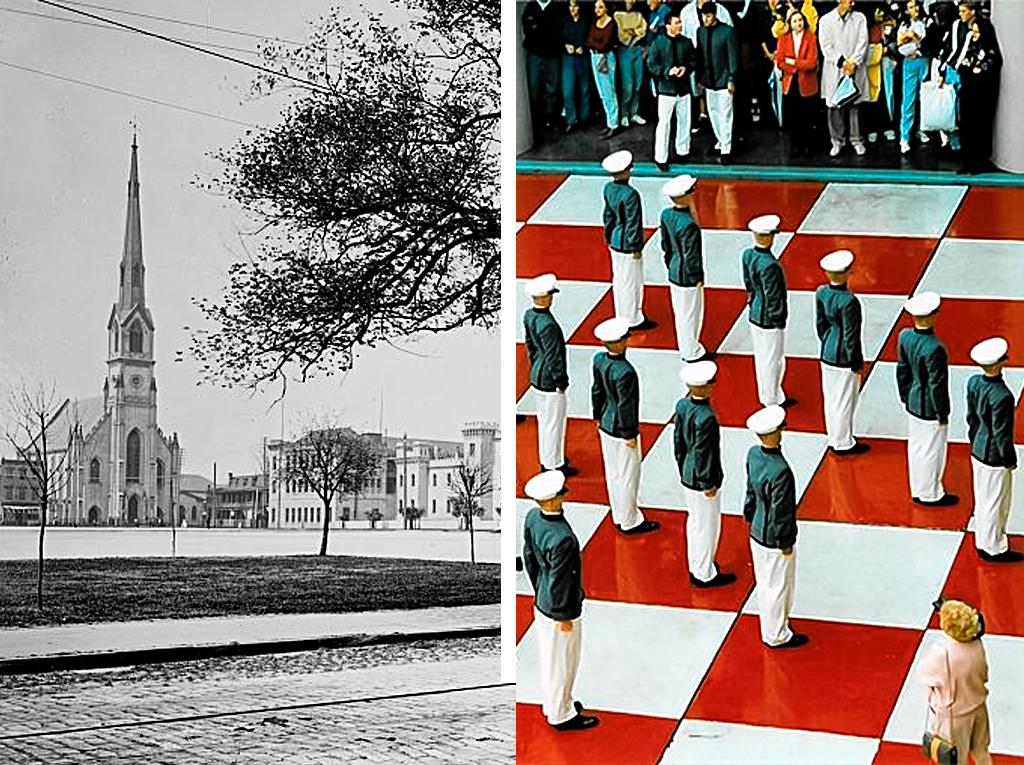
“People definitely want to have a safer America to help rebuild it,” Mr. Weldon said, noting that he believes that President Trump has stronger support at The Citadel than Ms. Haley or incumbent President Joe Biden.
“I just feel like he has a better grasp on the youth compared to Nikki Haley,” he said.
sophomore Kayla Cyrus told The Epoch Times, “We have some Democrats; we have some Republicans; we have some independents. I think it’s a good mix.”
She said her school “is not really preaching against or for” war in Iran or other places around the globe.
Defense Contracting and Confederate Renaming
In North Charleston, not far from the airport and the Boeing campus, Citadel graduate and Air Force veteran Gary Jaffe leads strategy and growth at Atlas Technologies, one of many defense contractors in the Charleston area.He spoke to The Epoch Times on behalf of the Charleston Defense Contractors Association, an industry group.
“The defense-industrial base is very strong here in Charleston,” Mr. Jaffe said.
He drew attention to the Naval Information Warfare Center Atlantic at Joint Base Charleston.
“Most of the members of our organization are seeking opportunities there,” Mr. Jaffe said.
It estimated that the military community had an economic impact of $34.3 billion—and $12.7 billion of that was concentrated in the Charleston area.
Mr. Jaffe attributed the news that the Coast Guard would soon locate a “superbase” in Charleston to South Carolinians’ pull in Washington. Mr. Graham, for instance, spent years on the Senate Armed Services Committee.
Charleston “is very, very pro-defense,” according to Mr. Jaffe. He posited that a less active (or aggressive) U.S. presence globally would harm the local economy.
He doesn’t think non-interventionism (or isolationism) is gaining ground in South Carolina.
“I think there’s a heightened awareness of the pacing threats that Russia and China present the United States. ... I believe this community has fully embraced and is on board with not only our existing presence but a growing presence,” Mr. Jaffe said.
Yet, even as he and others argue for greater U.S. vigor, the military has faced a recruiting crisis—particularly of white soldiers.
A partial explanation for the trend can be found just across the Georgia line at Fort Eisenhower. Until just a few months ago, it was known as Fort Gordon after John Brown Gordon, a general in the Confederate States of America who later served as a Georgia senator and the state’s governor.
Fort Gordon is just one of multiple military installations across the South that are being renamed to shed associations with the Confederacy. While advocates of renaming argue that it advances racial justice and rights old wrongs, critics see it as one more manifestation of “wokeness” in the military that undermines U.S. military strength while vilifying specific groups—whites, men, Christians, Westerners, and heterosexuals, among others.
Southerners and the Confederacy have been central targets in the contemporary U.S. Cultural Revolution.
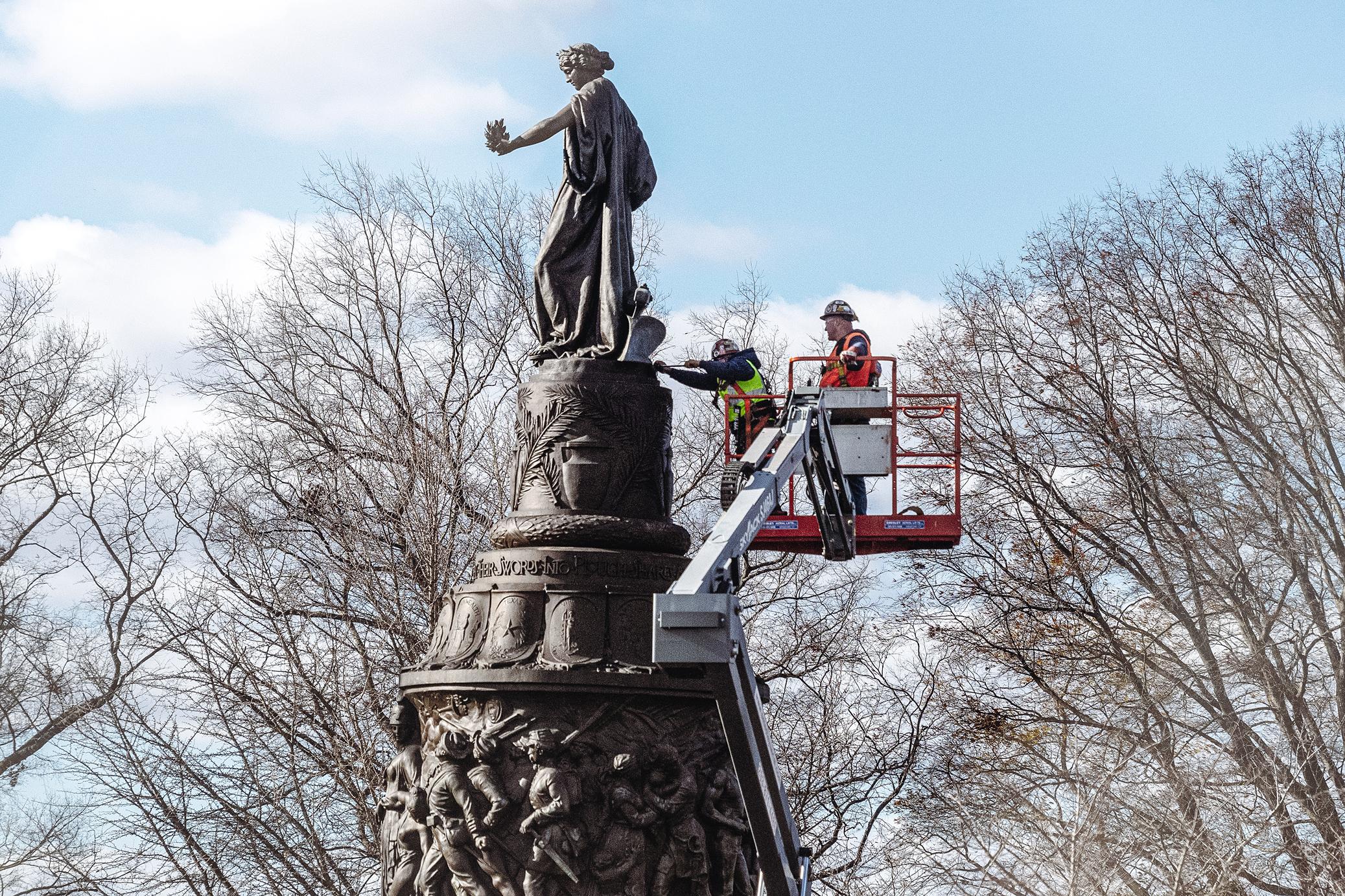
“Taking down the Reconciliation Monument was a serious blow to morale,” Mr. Wilson said, referring to the removal of a Confederate statue at Arlington National Cemetery.
Mr. Jaffe didn’t want to weigh in on cultural issues, arguing that those conflicts are a little hard to quantify. He chalked up enlistment issues in part to money.
“I feel like pay and equitable wages for our servicemen and women is really the most important,” the Air Force veteran said.
Mr. Wilson disagreed.
“No, I don’t think it’s a pay issue,” he said.
‘Everybody’s Got an Opinion’
Like Clemson’s Mr. Tiedeman and Mr. Wilson, Jeff Davis, former chairman of the Greenville County GOP, laments the relatively liberal tendencies in South Carolina’s statehouse—something he has also identified in the top ranks of the military and the military-industrial complex, although not in the rank and file.“For whatever reason, you do not rise up offending people. And people like me, I’m happy to offend people,” Mr. Davis told The Epoch Times.
Rep. Ralph Norman (R-S.C.), the only member of South Carolina’s congressional delegation who supports Ms. Haley over President Trump, was hesitant to say that “Tucker Carlson conservatism” is eclipsing neoconservatism in his state.
“Depends on who you talk to. Everybody’s got an opinion,” he told The Epoch Times.
Mr. Norman also sounded skeptical of the idea that voters see things much differently from the state’s elected officials.
“If they’re dissatisfied enough, they’ll show up at the polls,” he said.
Yet when reiterating his potential openness to a primary challenge of Mr. Graham in 2026, Mr. Norman didn’t hesitate to question that senator’s record in favor of war.
He contended that Mr. Graham “has never been a hawk” on the budget.
Rep. Bill Timmons (R-S.C.), a member of a Greenville real estate and trucking dynasty and a supporter of President Trump’s White House bid, objected to the notion that his state has particularly “hawkish” representatives in the Senate and the House.
“We don’t want to go to war,” he told The Epoch Times. “I believe the United States has a critical role in global leadership.”
Mr. Jaffe had a similar point of view.
“The global climate sort of commands leadership, and that’s what America delivers,” he said.
Mr. Wilson offered a more skeptical perspective.
“South Carolinians are loyal and patriotic. They will volunteer to fight an enemy. The notion of ‘global democracy’ does not ring a bell,” he said.
Capt. Eric Oser, a retired submarine commander who served in Adm. Hyman Rickover’s nuclear Navy, also spoke of the U.S. presence on the world stage, including in relation to China.
China has stepped up its production of Type 096 submarines, nuclear-propelled vessels armed with nuclear ballistic missiles. What does that mean for U.S. national security?
‘To Fight and Win Wars’
Mr. Timmons, a captain in the South Carolina National Guard and a member of the Air Force’s Judge Advocate General’s (JAG) Corps, argued that the current president is “using the executive branch to reshape society in their world view,” including in the military.“I see it firsthand constantly. Everything is about diversity, equity, and inclusion. Everything is about climate,” he said.
“The military is to fight and win wars. I can assure you that the Russians and the Chinese don’t care what color you are.”
On the afternoon of Feb. 4, a few hours before Ms. Haley spoke on Daniel Island, the weather was cold and windy on Sullivan Island.
But that didn’t stop people from visiting Fort Moultrie, a grass-covered complex of parapets dotted with cannons and other artillery from centuries past. The visitors included more than a few fathers and sons, the latter curious about everything they saw—including a World War II-era machine that could, in the event of chemical warfare, both cool and purify the air.
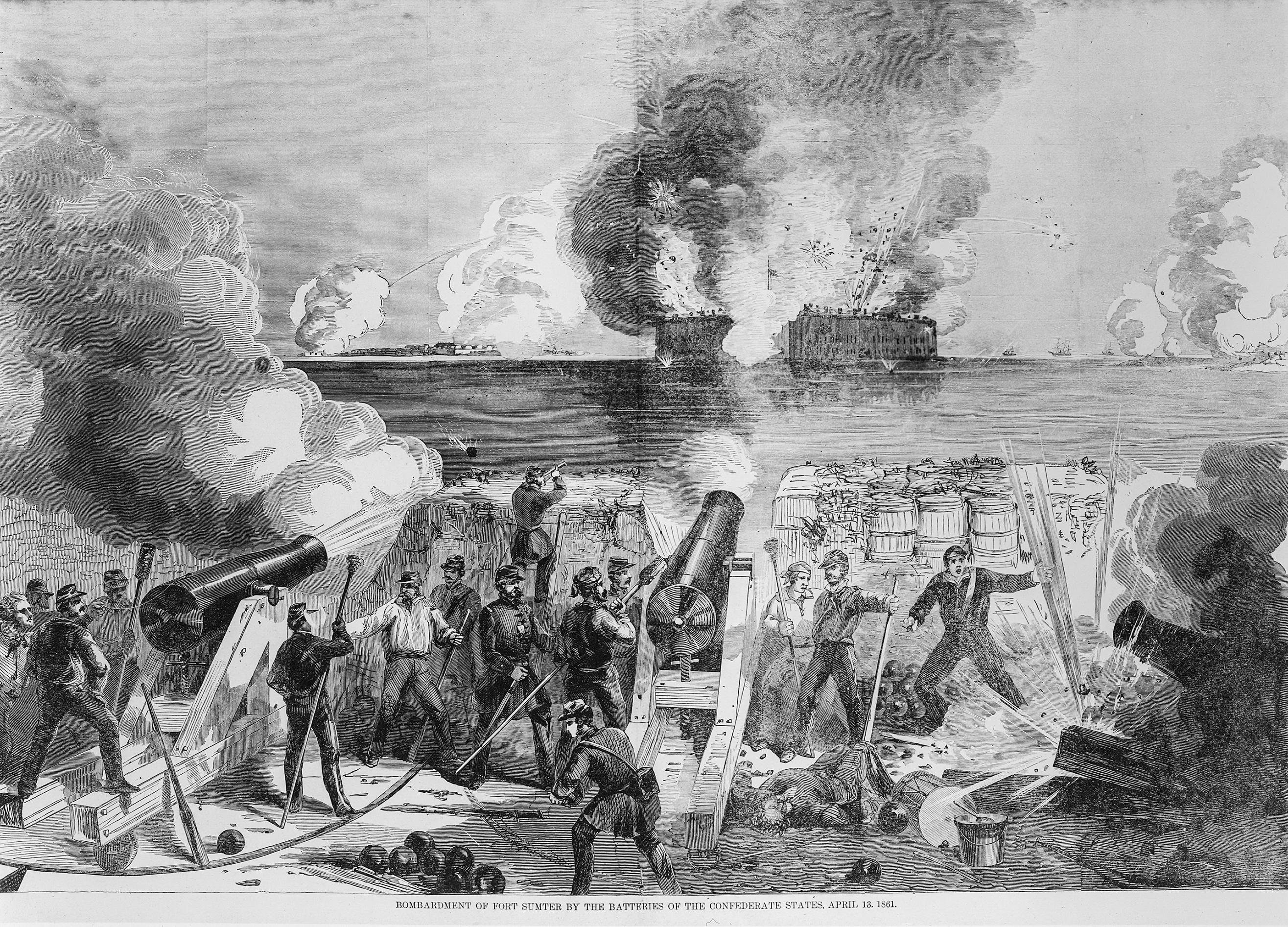
“Isn’t it [chemical warfare] a war crime?” Ms. Haley said. “Doesn’t mean it never happens.”
Man, by his nature, makes war. All of his greatest civilizations are built on successful conquest. Even when things are at their least nasty and brutish, peace and order depend on a well-honed capacity for defense—the strength to fight, always in reserve, never exhausted.


